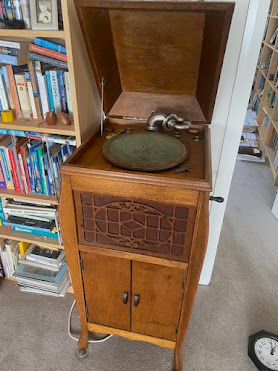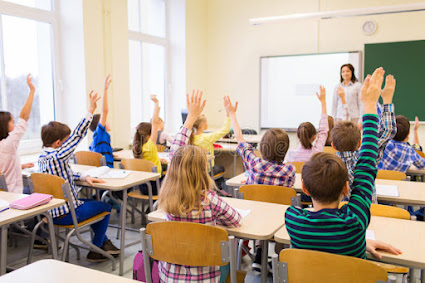A recent media report presented survey results which suggested 60% of parents find it hard to play with their children. Another report indicated parents should spend at least 30 mins a day in directed play with their toddlers. The media report shared some surprising comments: "I don't have the time." "I don't know how to play with a toddler." And "I hate playing with my toddler".
I wrote a post in 2020 titled 'The Slow Death of the Imagination in our Schools - Part 1'. It seems like I need to write Part 2. The recent media reports and responses have stunned me into action!
My purpose in writing the post isn't to make parents feel guilty, especially in an age where both parents typically have paid jobs outside the home. Time is sometimes hard to stretch to allow things that might seem less critical (e.g. playing with our children). And of course, a sole parent needs to do the lot!
I want instead, to remind everyone that creativity is critical for the world! Creative activities are not an optional extra in life. Unfortunately, we live in times where the globe faces numerous challenges. These include climate change, tragic natural events, the loss of far too many animal, insect, plant and marine species etc. On top of this we have seen global conflicts, pandemics and more. Now, I won't depress my readers. But we need to deal with our challenges. And it isn't just knowledge that will help to solve our many global challenges. Creativity is required in concert with knowledge to enable us to sustain our world.
The problematic factor is that our schools have never had less time for fostering creativity. This is one of our great educational challenges. Teachers live in an age of constant external pressures to help children succeed on tests. The sad part is that the the more we test, the less time we have to teach and encourage creativity and the application of knowledge to the world. The nations that privilege and promote this at EVERY level of education, will be best placed.
My post is motivated by the release of the latest NAPLAN test results. These once again show that Australia lags well behind nations like Sweden, where higher marks are demonstrated across all social class levels, as well as regional and urban locations. This is important because while politicians don't spend much time comparing public and private education, they should. Why? Because it would shed light on the great challenges for the public education system to teach more than just knowledge for external tests. We need a greater concentration on developing learners who can solve problems and seek creative solutions, not simply achieve high marks on external standardized tests.
Some of the depressing trends we've seen in higher education include:
- Lower entry scores to be educated as a teacher than virtually any other course.
- Large salary gaps between teachers in public and private education.
- More children in public education from disadvantaged communities including urban and rural schools.
- All of the above tend to skew results for children of the privileged who typically attend private or selective schools.
Creativity is NOT simply a gift to privileged children
 |
| Above: A 'Big' sister reads to Lydia (age 1 day) |
Neuroscience research has taught us a number of things about the young brain, including the immense capacity of children to learn, and for their minds to expand when stimulated. But across our school education system in Australia, I still see a dumbing down of the curriculum. State and nationally mandated testing seems increasingly to shape school programs and classroom practices, as well as wider community expectations.
 |
| Above: Philosopher Martin Buber |
However sadly, parents, teachers and schools can suppress
this inbuilt creativity, and drive it from them with banal and repetitive activities.
As teachers and parents we can either "draw out these powers", or stifle them when done badly. What we offer in schools is but "...a selection of the world." In short, each child is
born with an innate ability and desire to explore, imagine and create.
The parent or teacher who says I have no time for creative work and play, is limiting the child's potential.
Above: A three year old doing some 'creative' writing
What can we do?
As parents and teachers we need to work hard at creating learning environments in which children are encouraged to ask "why?', "what if", "how come" type questions. Parents, should endeavour not to become tired of the toddler asking "why", "what if", "how come" questions. We need to respond to them.
We also need to seek a variety of experiences for our children. As a parent and grandparent I spent as much time as possible with my children (and grandchildren) exploring their world. This included digging in my compost heap, seeking out bugs in our back yard, paddling in estuaries and rock pools, looking at the sky, and reading about the natural wonders of the world. We also read hundreds of books together, drew pictures after key experiences and more.
Teachers also need to look for ways to stimulate the imaginations of the children in our classes. There are many ways to do this, including reading to them and encouraging their responses (in word, drawing, actions...). There are also numerous simple experiences that we can integrate into classroom activities at varied grade levels.
 |
| Above: The restored Gramaphone that I still have! |
In another school we created a number of gardens for flowers and edible plants. While teaching a grade 2/3 composite class we built a brontosaurus (measuring 3 metres by 1 metre) as a garden centrepiece in the school playground. To the joy of the students, this was featured on the front page of our city newspaper.
Of course, there are subjects in the curriculum that should naturally allow imagination to be developed; including science, art and craft.
My point in revisiting the previous post with an update, is that I have a sense that we've gone backwards. We cannot afford to allow creativity to be lost in the desire to skill, drill and educate for external exams. Education at all levels is about growing our students in more than just subject knowledge.
Never allow the 'what if'? question to leave your classroom or home.
If parents reading this post feel they haven't the time, or they don't know what to do, talk to other parents who do seem to do it, or just give it a go.


